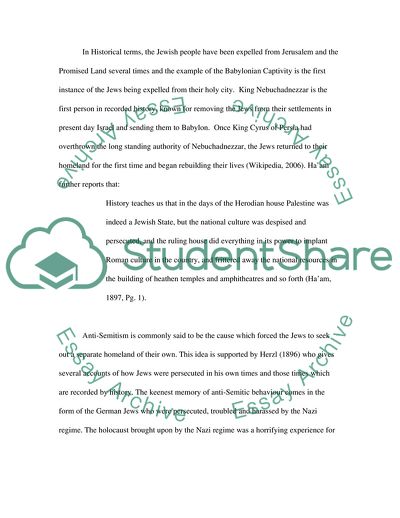Cite this document
(The Independence of Israel Essay Example | Topics and Well Written Essays - 1750 words, n.d.)
The Independence of Israel Essay Example | Topics and Well Written Essays - 1750 words. https://studentshare.org/history/1705074-1948-israel-independence
The Independence of Israel Essay Example | Topics and Well Written Essays - 1750 words. https://studentshare.org/history/1705074-1948-israel-independence
(The Independence of Israel Essay Example | Topics and Well Written Essays - 1750 Words)
The Independence of Israel Essay Example | Topics and Well Written Essays - 1750 Words. https://studentshare.org/history/1705074-1948-israel-independence.
The Independence of Israel Essay Example | Topics and Well Written Essays - 1750 Words. https://studentshare.org/history/1705074-1948-israel-independence.
“The Independence of Israel Essay Example | Topics and Well Written Essays - 1750 Words”. https://studentshare.org/history/1705074-1948-israel-independence.


